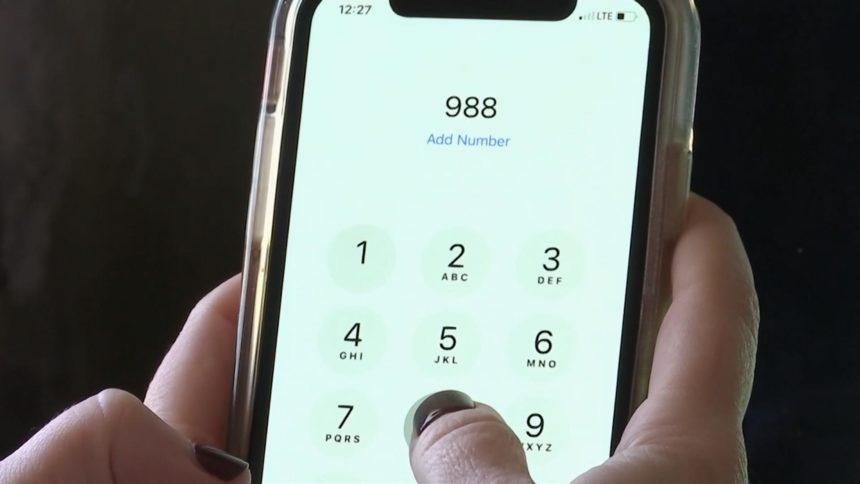MADISON (WKOW) — As the FCC works to transition the suicide prevention hotline from a 10-digit number to a 3-digit number, Wisconsin experts voice their support, though they said that change needs to come with additional resources.
In an emergency, every second counts which is why mental health crisis lines like 1-800-273-TALK, are staffed 24/7.
According to Leah Rolando, with Mental Health Wisconsin, all crisis counselors are trained to react to mental health emergencies with the same urgency as any first responders.
“From the time somebody’s thinking about suicide to planning suicide, to attempting suicide is a really short period of time,” she said.
Rolando herself has volunteered with the 24/7 textline, where she said counselors follow the same basic philosophy.
“Meet people where they’re at and de-escalate a crisis before it becomes a bigger crisis,” she said.
Rolando said that approach is important for dealing with anyone who is either considering hurting themselves or knows someone who is. Still, when someone is in that kind of a crisis, she said they need help the easiest way they can get it.
“Anything can be a barrier for reaching out for help,” she said.
Unfortunately, Rolando said that can even include the crisis line numbers. Most people don’t know them off the top of their heads and while Rolando said organizations like hers have spent years working to raise awareness about these numbers and resources, someone in a crisis may not take the time to look those numbers up.
“That might kind of dissaude them to call,” she said.
The FCC hopes to address that by changing the hotline number to 988.
Nami Dane County Executive Director Anna Moffit said that change could make a big difference.
“All of our kids now know from a very young age, if there’s an emergency, call 911,” she said. “Now as we talk more about mental health awareness and wellness, folks can be learning, this is the number you can be learning if you’re thinking about completing a suicide.”
Though with an easier number to call, the FCC and mental health experts expect calls to increase dramatically, perhaps even double, which is why the change won’t come overnight.
“We want to keep wait times down,” Rolando said. “We don’t want to just switch to a three digit number and then expect to not increase the capacity.”
The 163 call centers across the country saw about 2.5 million calls in 2018. According to Mental Health Wisconsin 29,402 came from the state.
Rolando said they’ll need more volunteers and more support at Wisconsin’s four call centers to prepare for this change. She said there’s nothing more important than ensuring someone is there to pick up the phone when someone reaches out in an emergency.
“That can actually prevent suicide and remind someone of their reasons for living,” she said.
Moffit said the preparations can’t stop there. She’s advocating for more statewide services to accommodate the influx of people seeking this help.
“It’s really going to be important for the county to look at what is our continuum of health care for people who have or are experiencing a mental illness,” she said.
The FCC estimates crisis centers will need about $50 million a year to support twice the calls they currently receive.
Over the next several months, the FCC will conduct public hearings to determine what they need to do to support the final number change.
Until that change occurs the best way to get help in a crisis is to call 1-800-273-TALK.


















